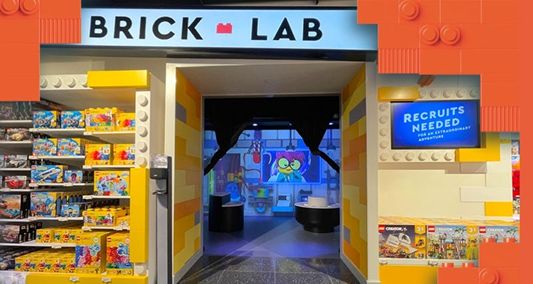The question, “Will AI take my job?” is one of the most common anxieties in today’s workplace. As artificial intelligence continues to evolve, employees across industries feel a mix of excitement and apprehension. Will AI automate us out of relevance, or will it create new opportunities we’ve yet to imagine?
The truth lies somewhere in between. AI is about transformation. To navigate this shift, workers must adapt, reskill, and rethink how they add value. Below are ten key insights and actions you can take to safeguard your career and thrive in an AI-powered future.
TL;DR
-
AI often augments, not replaces, human work.
-
Soft skills like empathy, creativity, and communication remain uniquely human strengths.
-
Routine, repetitive roles are most at risk of automation.
-
Continuous learning and interdisciplinary knowledge are crucial for resilience.
-
Ethical awareness and human networks will continue to drive business.
1. Will AI Take My Job or Just Augment It?
Insight: AI’s primary role is to enhance productivity, not eliminate workers. From automating administrative tasks to generating insights, AI helps humans focus on higher-value work.
Action: Embrace AI tools in your role. Whether it’s ChatGPT for drafting or predictive analytics software, demonstrate adaptability by integrating them into your daily tasks.
2. Soft Skills and the Future of Work With AI
Insight: Machines excel at speed and accuracy but lack empathy, creativity, and leadership – the hallmarks of human work (see Why Soft Skills Still Matter in the Age of AI, Harvard Business School)
Action: Invest in soft skills. Take courses in communication, leadership, and creativity. As Harvard Business Review notes, emotional intelligence often separates top performers from the rest.
3. Routine Jobs at Risk: Where AI Will Take Over First
Insight: Repetitive, rule-based jobs are most at risk of automation. Roles in data entry or standardized reporting may see significant shifts.
Action: Diversify your skill set. Move toward roles requiring problem-solving, strategy, or creativity. Seek projects that stretch beyond repetition.
4. Ambiguity and Judgment: Why AI Won’t Take These Jobs
Insight: AI works best when rules are clear. But the gray areas: crisis management, strategic planning, negotiations, still need human judgment.
Action: Position yourself in roles where ambiguity is the norm. Cultivate decision-making skills that rely on context, ethics, and nuance.
5. Continuous Learning
Insight: AI is evolving fast. What’s cutting-edge today may be obsolete tomorrow.
Action: Make learning a habit. Follow industry trends, take courses on AI applications, and read thought leadership in outlets like The Economist and Fast Company. Lifelong learning is now a baseline expectation.
6. Interdisciplinary Knowledge as Job Security in the AI Era
Insight: AI struggles with knowledge that spans multiple domains. A marketer with data science expertise, or an engineer with business acumen, brings irreplaceable value.
Action: Broaden your knowledge base. Explore adjacent skills: data visualization, behavioral science, or industry-specific compliance that enrich your primary expertise.
7. Data and AI Jobs: Why Human Oversight Still Matters
Insight: AI relies on vast datasets. Without clean, accurate, and ethical data, AI outputs fail.
Action: Develop data literacy. Understand the basics of data quality, analytics, and interpretation. Many organizations are creating roles specifically for AI ethics and governance, as Forbes reports.
8. Ethics and the Question of AI Replacing Jobs
Insight: As AI becomes embedded in decision-making, ethical dilemmas, from bias to privacy, become more pressing.
Action: Lead discussions around ethics in your industry. Understanding the societal and organizational implications of AI positions you as a responsible innovator, not just a technologist.
9. Human Networks: Why AI Cannot Take These Jobs
Insight: Networking is not just transactional; it’s built on trust, rapport, and shared experiences. AI cannot replace these dynamics.
Action: Double down on relationship-building. Attend conferences, mentor others, and maintain authentic connections. Bloomberg Businessweek highlights that strong professional networks often unlock opportunities that skills alone cannot.
10. AI Is a Tool, Not a Replacement for Your Job
Insight: At its core, AI is a means to an end. Humans remain the ultimate decision-makers, leveraging AI as a tool.
Action: Shift your mindset. See AI as part of your professional toolkit. Instead of fearing it, learn how to collaborate with it.
Conclusion: Will AI Take My Job, or Help Me Do It Better?
The rise of AI undoubtedly brings challenges. But for those willing to adapt, it opens doors to new opportunities. By blending human creativity, empathy, and judgment with AI’s speed and precision, the workplace of the future can achieve outcomes neither could deliver alone.
So, will AI take your job? Maybe parts of it. But if you stay adaptable, continuously learn, and focus on the human strengths machines cannot replicate, the better question becomes: How can AI help me do my job better?
FAQs
1. Which jobs are most at risk from AI?
Routine, repetitive roles such as data entry, administrative support, and some customer service functions are most vulnerable.
2. What jobs are least likely to be replaced by AI?
Jobs requiring creativity, empathy, and strategic thinking, like leadership, design, and counseling, remain relatively safe.
3. How can I future-proof my career against AI?
Focus on continuous learning, soft skill development, interdisciplinary knowledge, and building a strong professional network.
4. How do I start learning about AI to stay relevant in my job?
Enroll in beginner-friendly courses on platforms like Coursera, Udemy, or LinkedIn Learning, and follow industry thought leaders.
5. Is AI more likely to create jobs or replace them?
Both. While AI may automate certain roles, it also creates new opportunities in AI development, ethics, oversight, and data management.
Related content you might also like:
- Can Technology Make Us Better Off While Also Taking Our Jobs?
- Generative AI Labor Market: Impacts on Jobs and Young Workers
- The False Comfort of AI: Jobs Will Be Replaced, Not Just Augmented
- The Ethics of Autonomy
- File Under Digital Decade: The Evolving Role of Video



